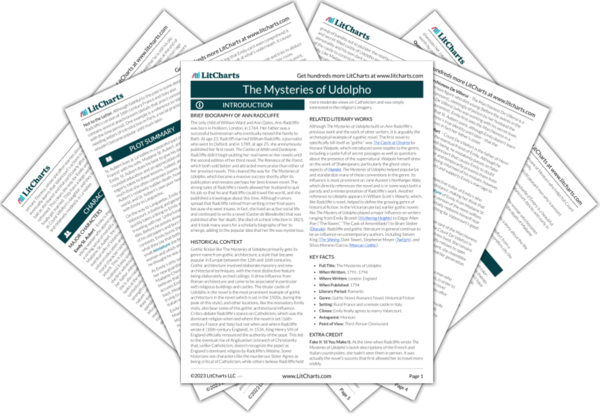This passage, where Annette keeps hinting that she wants to go, humorously draws attention to the fact that, while Emily treats Annette better than most people treat their servants, even Emily is sometimes guilty of asking too much. The return of Count Morano means there is yet another potential danger to Emily in Udolpho, adding to the suspense.
